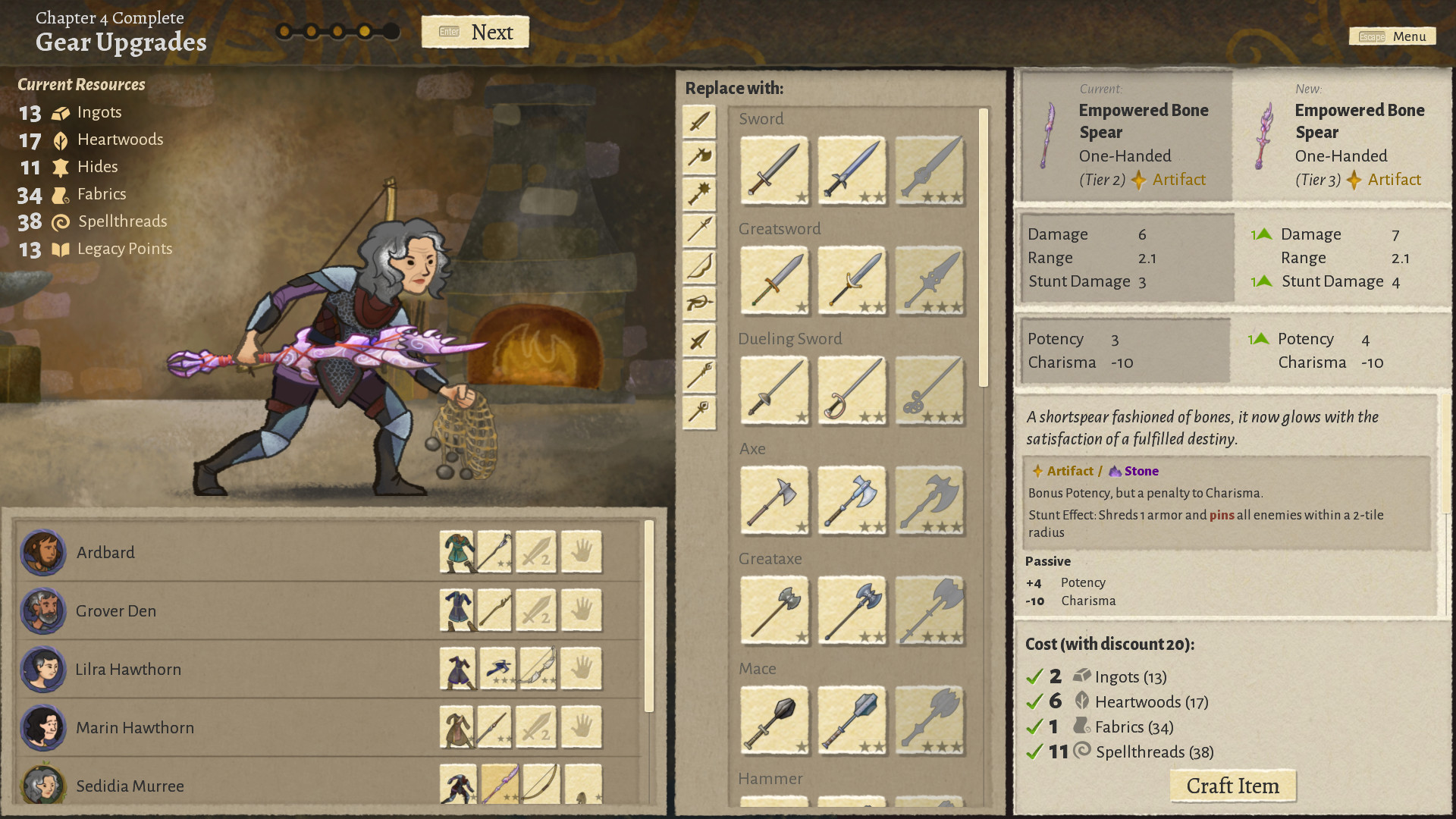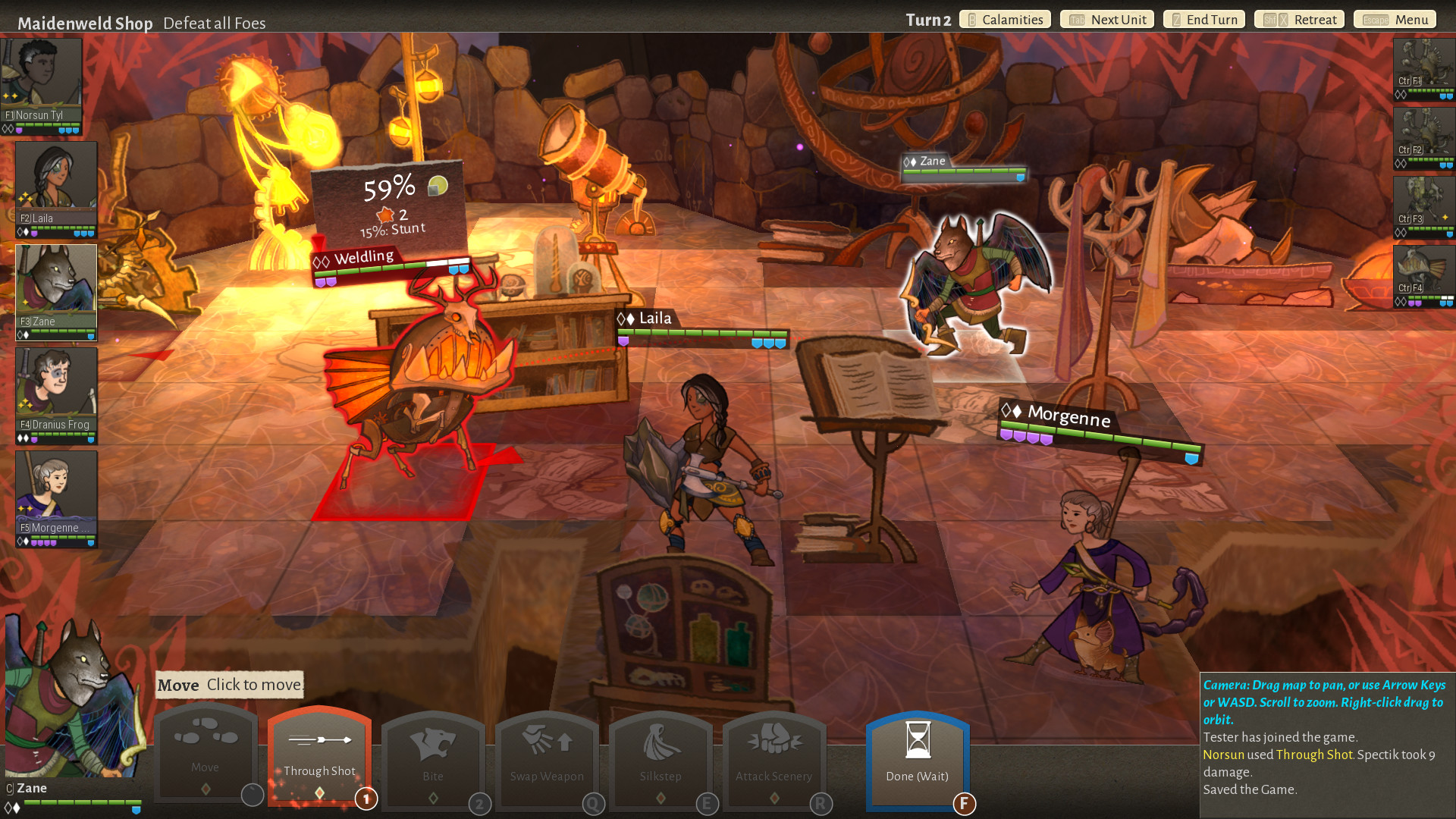

But all together, if you want to please a wide audience, you need to satisfy all of them.īad planning mistakes before a battle – and no context to justify them – break the intellectual component of pleasure, essential for many viewers. What is important for one audience member, will not be so crucial for another. The point is, they are all important, but different viewers value them differently. symbolic – when we are able to see a superior meaning behind the actions described.moral – when our sense of “justice” is fulfilled.intellectual – when our brains are stimulated.emotional – coming mainly from characters and the display of their emotions.A diverse audience appreciates different aspects of storytelling, all of which concur in creating a pleasurable experience.Īristotle illustrates four types of “proper pleasure” in drama:
#Wildermyth reaction strike series#
After eight seasons, fans have a deep investment in the series and many are hardcore nerds really passionate about it.
#Wildermyth reaction strike tv#
“Game of Thrones” is probably the biggest tv show of all times, and it is subject to a lot of scrutiny. Easily broken if situations are presented that make little logical sense to the viewers. Why? Because in order to work, Fantasy relies on the suspension of disbelief. “The Lord of the Rings” and “The Gladiator” are also fantasy, but represented field battles in a much more believable way. I know what some people are thinking at this point. But still, this leaves a part of the audience dissatisfied. So maybe, this is the battle aesthetics that the authors want to create for their show. The “Battle of the Bastards” was also a similar bloodshed. So, maybe, strategy is not such a valuable asset in the Seven Kingdoms after all. Now, one of the best military strategists in Westeros was Robb Stark, and we all remember what happened to him. Why deploy the Unsullied in the open, and leave so few men defending the gate and walls? Since the wights are vulnerable to fire, why not wait behind the walls and rain a hell of boiling oil and fire all over them? Never fight zombies in the open, never! Even the placement of the wooden fence feels somehow wrong.

The poor tactical use of dragons – the only really effective weapon humans have – on the battlefield. The catapults placed before the infantry, lost too soon. The Dothraki cavalry in front, launching a charge in the dark and against an invisible enemy. With the only exception of Cersei’s faction still in the south, all the best strategists of Westeros (and more) are gathered in Winterfell.Īnd THIS is the best battle strategy they can put together?Ī number of obvious mistakes strike even the casual observers. Three Reasons why “The Battle of Winterfell” is broken.

But first of all… MASSIVE SPOILERS AHEAD, read at your own risk. I find that this episode, as spectacular and ambitious as it is, breaks a few fundamental principles of narration as described by Aristotle in his Poetics. I am talking about something deeper, in its heart. I am not talking about the darkness so many people were complaining about (it’s an artistic choice, and if people had a bad experience, it may depend on the quality of their screen or streaming service). Hey, that’s Spectre!Īfter watching it three times (and we are talking about 90 minutes of screen time), I finally collected my thoughts in what comes next. Sure, it’s tense, the action happens on a massive scale, it offers gorgeous visuals… but somehow, for me, it doesn’t work. Also fans are divided: some absolutely loved it, tweeting of tears and “oh my God!” moments, while others were much less impressed. In terms of reaction, however, it’s more of a mixed plate (s08e03 currently sits at 73% on rotten tomatoes, the lowest score since season 5). And it could be argued that the “ longest battle sequence in cinema history” will change television forever. In terms of development of the story, it’s been a landmark episode. “The Long Night”, the 0803 episode of “Game of Thrones”, was aired last Sunday and boy, is it causing some ripples.


 0 kommentar(er)
0 kommentar(er)
